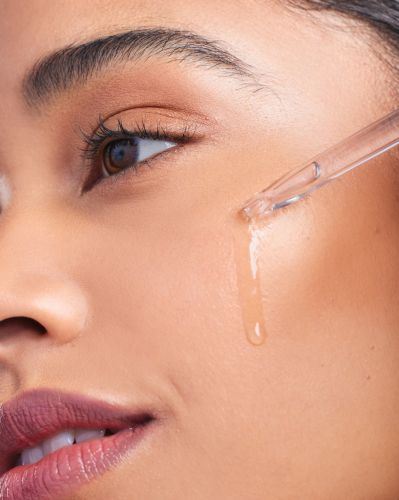After a motion requesting a preliminary injunction was filed by a clothing brand of the same name, a federal judge in New York ruled that model Hailey Bieber can continue promoting her brand while the Rhode skincare lawsuit is ongoing. The judge’s ruling follows an emergency request made by the fashion label Rhode in connection with the release of Bieber’s YouTube documentary called “The Making of Rhode.” But for now, Bieber can continue selling and marketing products under the Rhode name.
What is the Dispute in the Rhode Skincare Lawsuit?
The Rhode skincare lawsuit was filed by two former college roommates who developed a successful high-end clothing and accessories line in 2013 stylized as “RHODE.” The founders of the clothing brand filed a trademark infringement lawsuit in the U.S. District Court for the Southern District of New York against Bieber just days after the launch of her “Rhode” skincare line. The lawsuit notes that while the model requested to buy the trademark rights to the “Rhode” name from the designers four years ago, they declined the offer. Nevertheless, Bieber named her skincare line for both her and her mother’s middle name.
The fashion brand argues in the lawsuit that while their company is projected to make $14.5 million this year, it cannot overcome the following of a celebrity such as Hailey Bieber. Although the clothing brand already owns the trademark for several different types of clothing items and accessories, they have also filed to include additional categories under the mark — and were considering skincare and make up as well. In the lawsuit, they stated, “We welcome competition — we just don’t want competitors using our name.”
But even though Bieber overcame the plaintiffs’ motion for a preliminary injunction, the legal battle for the name continues as the Rhode skincare lawsuit is ongoing. While Bieber reportedly filed for a trademark for her brand in May, the case was not yet under review at the time the infringement lawsuit was commenced.
Is Using the Same Name as Another Company Trademark Infringement?
Under trademark law, it is unlawful for a company to use another’s mark in connection with their goods or services if it would be likely to cause confusion among consumers — whether it be a name, logo, symbol, or catchphrase. Specifically, the United States Patent and Trademark Office defines infringement as the unauthorized use of someone else’s mark in a way that would lead to deception, confusion, or mistake as to the source of the goods or services.
Factors that are considered to determine whether a likelihood of confusion exists include the following:
- Appearance of the design
- Placement of the words
- Phonetic sound of the name
- Connotation
- Commercial impression of the mark
- The relatedness of the goods or services
In evaluating whether a name is infringing upon another’s trademark, a court might also look at where the products are marketed, how strong the plaintiff’s mark is, and the scope of prospective consumers. In addition, a court would consider evidence of actual confusion among consumers.
Steps to Take to Avoid a Trademark Infringement Lawsuit
If you are using someone else’s mark, it makes no difference in trademark law whether infringement occurred willfully or by mistake for the purposes of an infringement lawsuit. This is why it is crucial to conduct a comprehensive trademark search before filing your application. Although an examining attorney reviews every trademark application, they will only determine whether there are conflicting trademarks in the database.
A proper clearance search is one of the most important things you can do to avoid inadvertent trademark infringement — and legal action being taken against you as a result. Not only is it necessary to conduct a knockout search in the USPTO’s database, but a full Trademark Electronic Search System (TESS) search can help you conclude whether the mark is clear for use. Additionally, it is the responsibility of a trademark holder to search the state government databases. Even if a company did not register their mark with the USPTO, they might still have priority rights if a state registration was filed before another party began using the mark.
Contact an Experienced Trademark Infringement Lawsuit Attorney
The Rhode skincare lawsuit is a critical example of the trademark issues that entrepreneurs and business owners can face — and how essential it is to protect your brand against infringement that could harm your company’s reputation and bottom line. Located in Ann Arbor, Michigan, the Trademark Lawyer Law Firm, PLLC, works with clients regarding all aspects of trademark law to help them ensure their brands are adequately protected from the competition. Contact us today to schedule a free 15-minute consultation.





